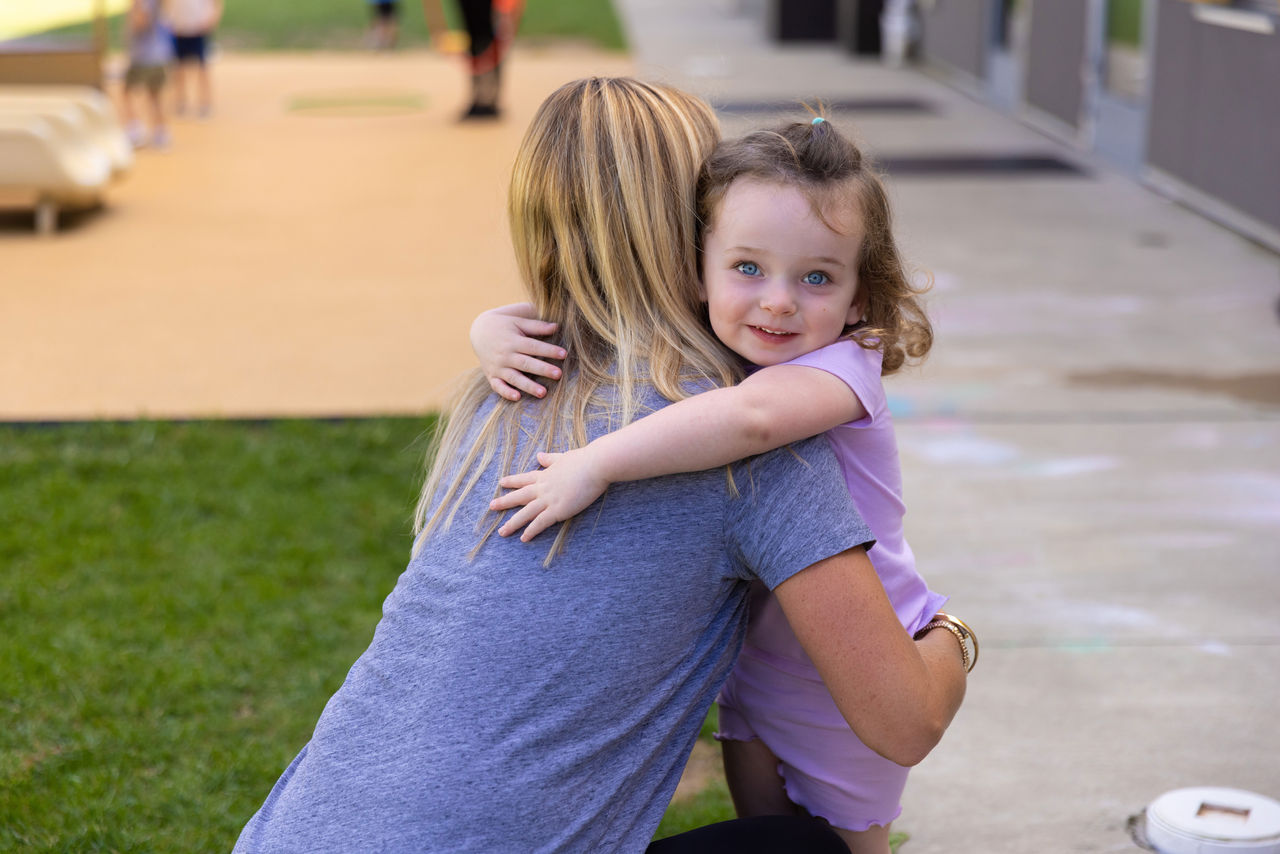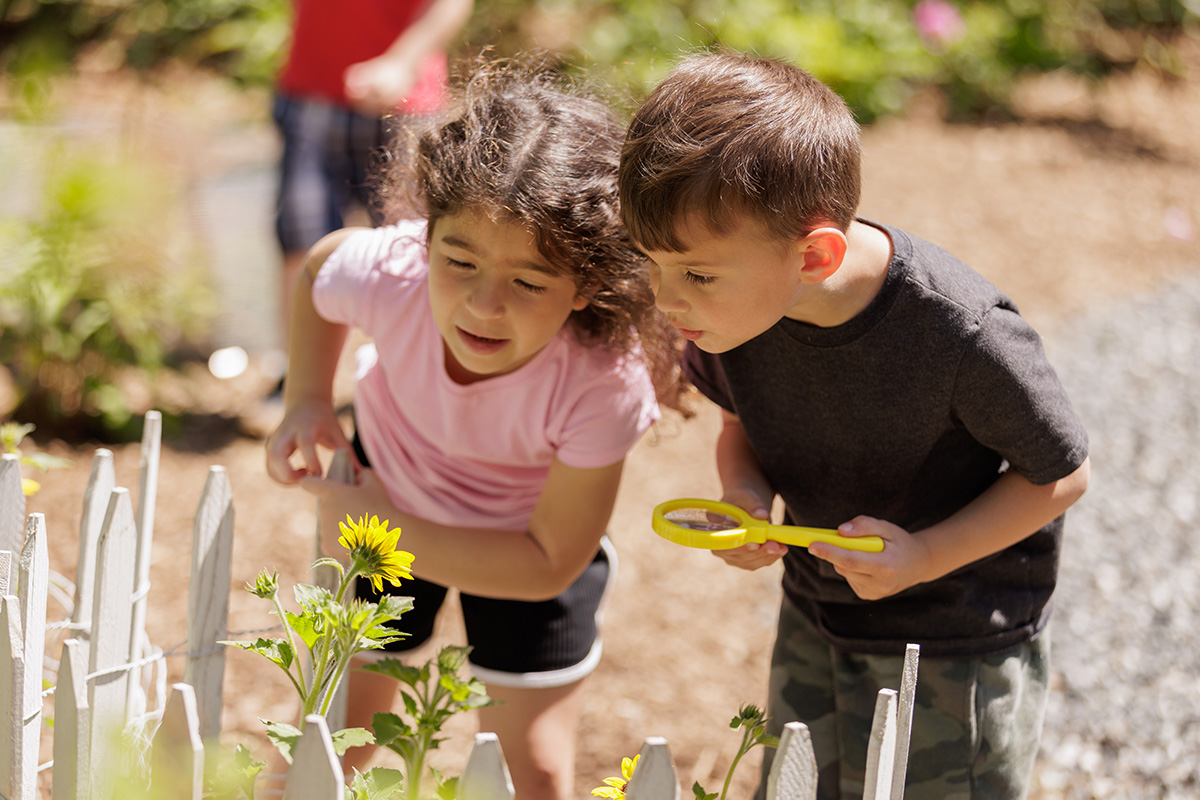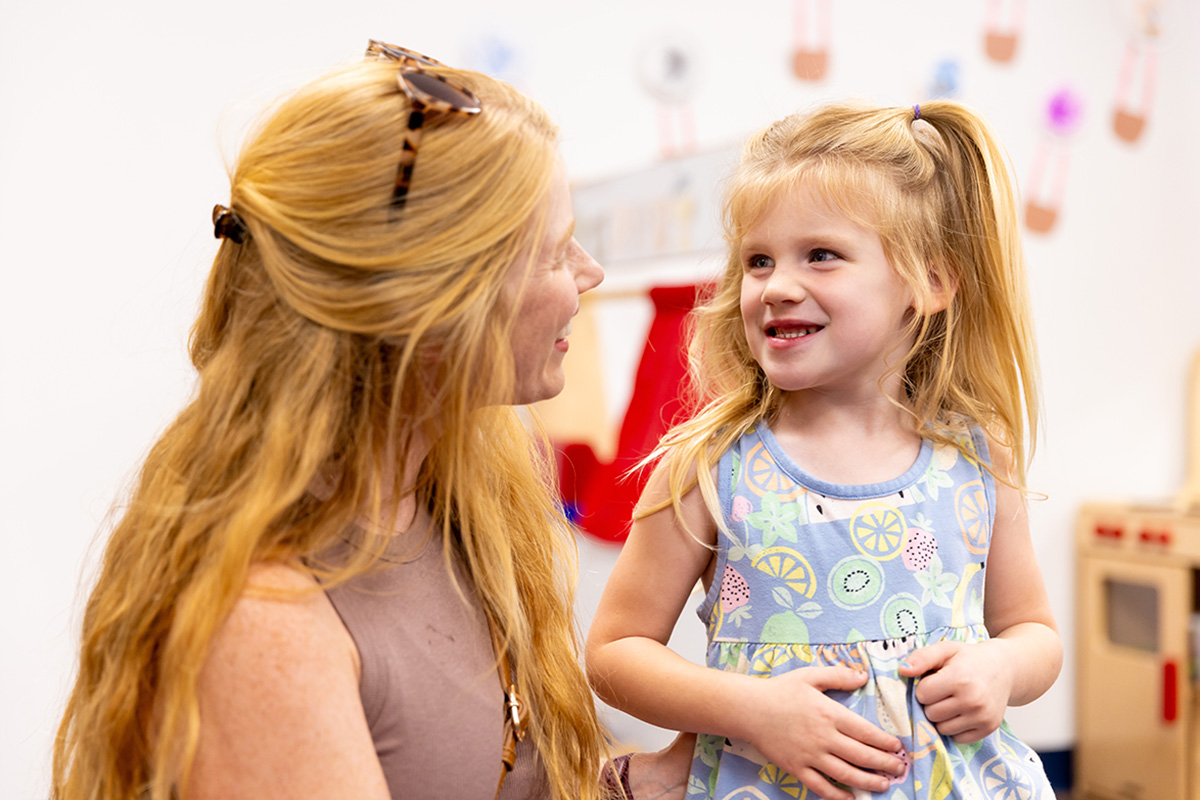The first five years of your child's life are a critical period filled with rapid brain development that sets the foundation for future cognitive, emotional, physical and social growth. Neuroscience research has demonstrated that early experiences significantly shape your child’s brain architecture, influencing lifelong learning and well-being (Shonkoff & Phillips, 2000; Wasserman & Zambo, 2013). During this time, your child’s brain is highly adaptable, making high-quality early childhood education (ECE) critical for optimizing development (Harvard Center for the Developing Child, 2011).
Because the experiences your child has within in their first five years of life impact their brain growth and future development, finding a high-quality early childhood education provider is important. Factors that set premium preschools apart and improve child outcomes include: caring relationships between the teachers and children, safe and stimulating learning environments, high-quality, developmentally appropriate curriculum and a child-centered instructional approach (Shonkoff & Phillips, 2000).
Wonder of Learning®, our proprietary education program, is an example of a child-centered curriculum that provides the type of personalized learning, stimulation, language-rich support and inquiry that supports early brain development. In Wonder of Learning, children explore a wide variety of open-ended inquiry topics. As teachers listen and observe, they modify the classroom environment based on the children’s interests and engagement with the inquiry topic. This type of active, agile instruction provides each child with constant challenge and truly personalized learning.
How can Wonder of Learning Help my Child Develop Key Skills?
Language and Literacy Development
Did you know that you can positively impact your child’s IQ simply by talking to them? Early language skills are the building blocks for reading, so the quality and quantity of verbal interactions are critically important to support your child’s early literacy skills. Studies show that children who engage in frequent conversations with caregivers develop stronger reading and writing abilities in later years (Kuhl, 2011). Language-rich environments, where caregivers engage in responsive interactions and expose children to diverse vocabulary, lay the foundation for academic success (Early Learning Matters, 2021). The Wonder of Learning curriculum uses an inquiry-based learning approach where teachers introduce open-ended questions and then engage your child in rich experiences, introduce higher-level vocabulary, and participate in many one-to-one, small group and whole group discussions that help to foster these important language and literacy skills.
Strong Relationships as the Building Block for Brain Building
Strong social-emotional development and positive, trusting relationships with caring adults in early childhood are linked to long-term positive impacts on mental health and academic performance (Early Learning Matters, 2021; First Five Years Key Concepts, 2021; Wasserman & Zambo, 2013). Secure attachments with caregivers and positive social interactions help children develop self-regulation, empathy and resilience. Premium preschools foster these skills by providing structured opportunities for peer interaction, emotional expression and problem-solving (Harvard Center on the Developing Child, 2021). Teachers in Goddard Schools spend time getting to know your child’s interests, passions and abilities and then plan lessons to pique your child’s curiosity and provide challenge as needed. In addition, at Goddard, we realize how important the home-school connection, so we work with families to set goals and share progress each day through daily reports in the Goddard Family Hub app.
The Goddard Village Supports Families
Parenting is filled with beautiful moments and messy challenges — and no one should have to navigate it alone. At The Goddard School, we believe in the power of community because raising a child truly takes a village. Our teachers, directors and School owners are here to be part of yours, offering support, guidance and a place where both you and your child feel seen, heard and valued.
You want the best for your child, and so do we. From providing high-quality early childhood education to being a trusted resource for all things parenting, we’re committed to being there for your family every step of the way. With nurturing classrooms, compassionate educators and a play-based curriculum designed for success, The Goddard School is more than a school — it’s a community that cares.
References
Early Learning Matters. (2021). ELM Curriculum User Guide: 3-5 Years. Purdue University.
First Five Years Key Concepts. (2021). Critical periods for brain development. Harvard Center on the Developing Child.
Harvard Center on the Developing Child. (2021). Brain architecture and early childhood development. Retrieved from https://developingchild.harvard.edu HCDC. (2021). Place matters: The environment we create shapes the foundations of healthy development. Harvard University.
Kuhl, P. K. (2011). Early language learning and literacy: Neuroscience implications for education. Mind, Brain, and Education, 5(3), 128-142.
Romeo, R. R., Leonard, J. A., Robinson, S. T., West, M. R., Mackey, A. P., Rowe, M. L., & Gabrieli, J. D. E. (2018). Beyond the 30-million-word gap: Children’s conversational exposure is associated with language-related brain function. Psychological Science, 29(5), 700-710.
Shonkoff, J. P., & Phillips, D. A. (2000). From neurons to neighborhoods: The science of early childhood development. National Academy Press.
Wasserman, L. H., & Zambo, D. (2013). Early childhood and neuroscience: Links to development and learning. Springer.




